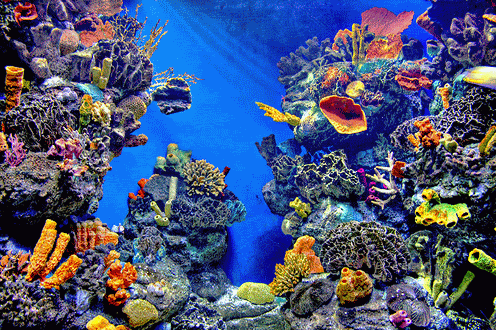In 1992, at an Earth Summit at Rio de Janeiro, Fidel Castro, the leader of Cuba, gave an extraordinary speech on ecological preservation entitled Tomorrow Will Be Too Late. Near the conclusion of the said speech, Castro stated that we have to pay our ecological debt, more so than foreign debt. True to his word, in 1996, the Cuban Ministry of Fishing declared a 150 km stretch of archipelago off the Southern coast of Cuba as a protected area, which meant that no activities were to take place there that would have the potential to distress the ecological system of the region.
Almost 20 years on, Jardines de la Reina (Gardens of the Queen), is one of the most preserved coral reef region in the Caribbean, if not the world. Going underwater is like going back in a time, you are transported to an ocean floor that would have existed about 100 to 150 years ago, not tampered by our technological progress.
 Despite the protected status, one of the main contributing factors for the Jardines de la Reina’s immaculate state is Cuba’s economic isolation through much of the last century. Driven by an austere dictator and governed through Communism, Cuba was left to stand on its own after Soviet Union’s fall. In any other country, the system would have collapsed but in Cuba the people were more resilient.
Despite the protected status, one of the main contributing factors for the Jardines de la Reina’s immaculate state is Cuba’s economic isolation through much of the last century. Driven by an austere dictator and governed through Communism, Cuba was left to stand on its own after Soviet Union’s fall. In any other country, the system would have collapsed but in Cuba the people were more resilient.
They resorted to homegrown solutions to much of the technological advancements they were deprived of. The same holds true for farming as well. Unable to import pesticides or fertilizers, the Cuban government launched campaign after campaign to encourage local farmers to adopt greener methods. The government’s effort bore fruit and the Cuban farming sector went through an organic farming revolution through much of the 1980s and 1990s. Continue reading



 A true out-of-body experience will connect you with the energy of creation and allows your thoughts to create everything you experience. It can best be explained by the understanding that your third eye is like a movie projector, creating your existence as you walk through it. Everything is mental on the astral side, if you think it, it transpires right in front of you. You are in absolute control of the entire experience.
A true out-of-body experience will connect you with the energy of creation and allows your thoughts to create everything you experience. It can best be explained by the understanding that your third eye is like a movie projector, creating your existence as you walk through it. Everything is mental on the astral side, if you think it, it transpires right in front of you. You are in absolute control of the entire experience.
 You are confident and comfortable speaking your own truth. You live in alignment with your soul and you honour and respect your heart desires, even if it means rejecting the approval of those around you.
You are confident and comfortable speaking your own truth. You live in alignment with your soul and you honour and respect your heart desires, even if it means rejecting the approval of those around you.
 According to a new study, published in the
According to a new study, published in the 


